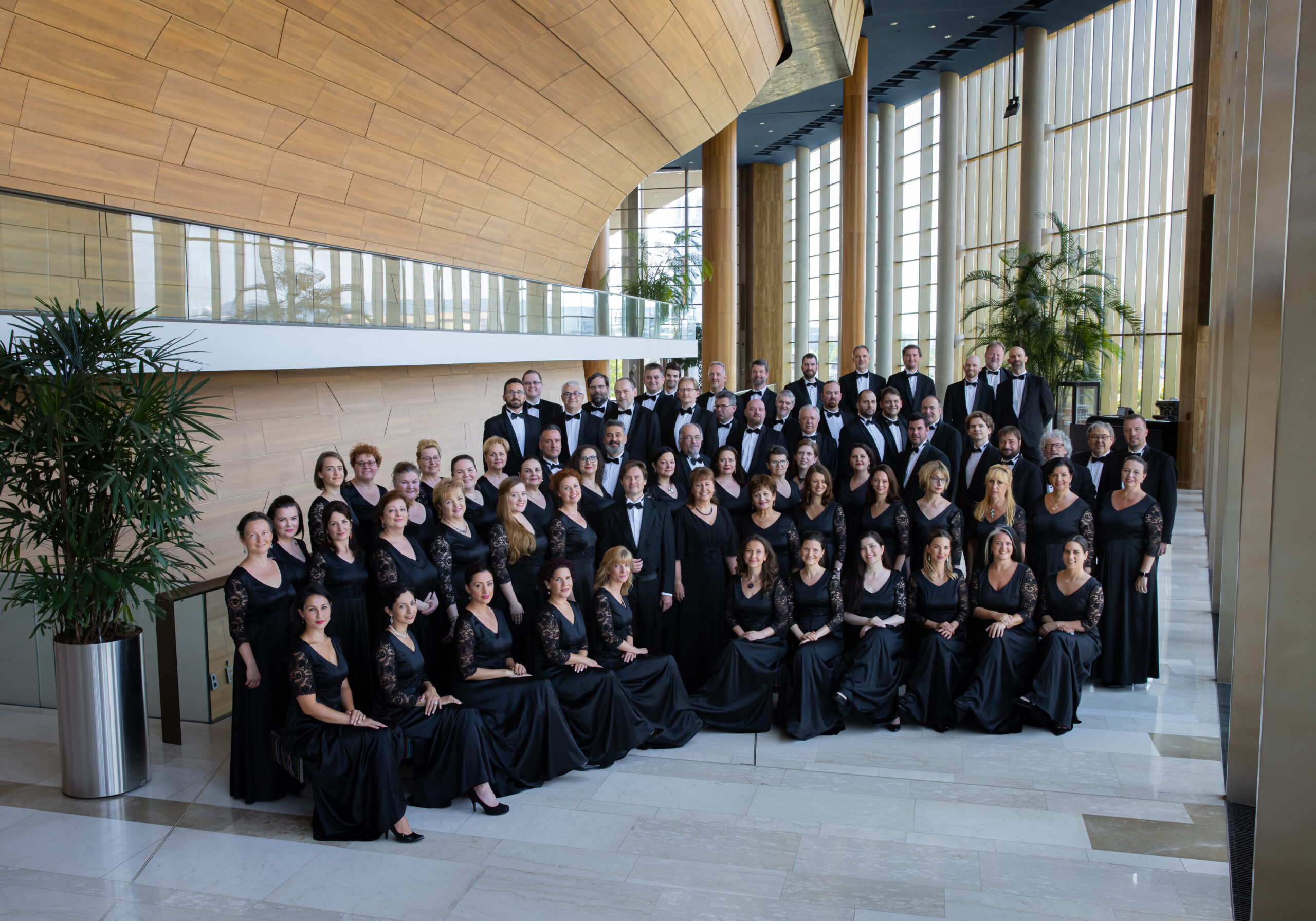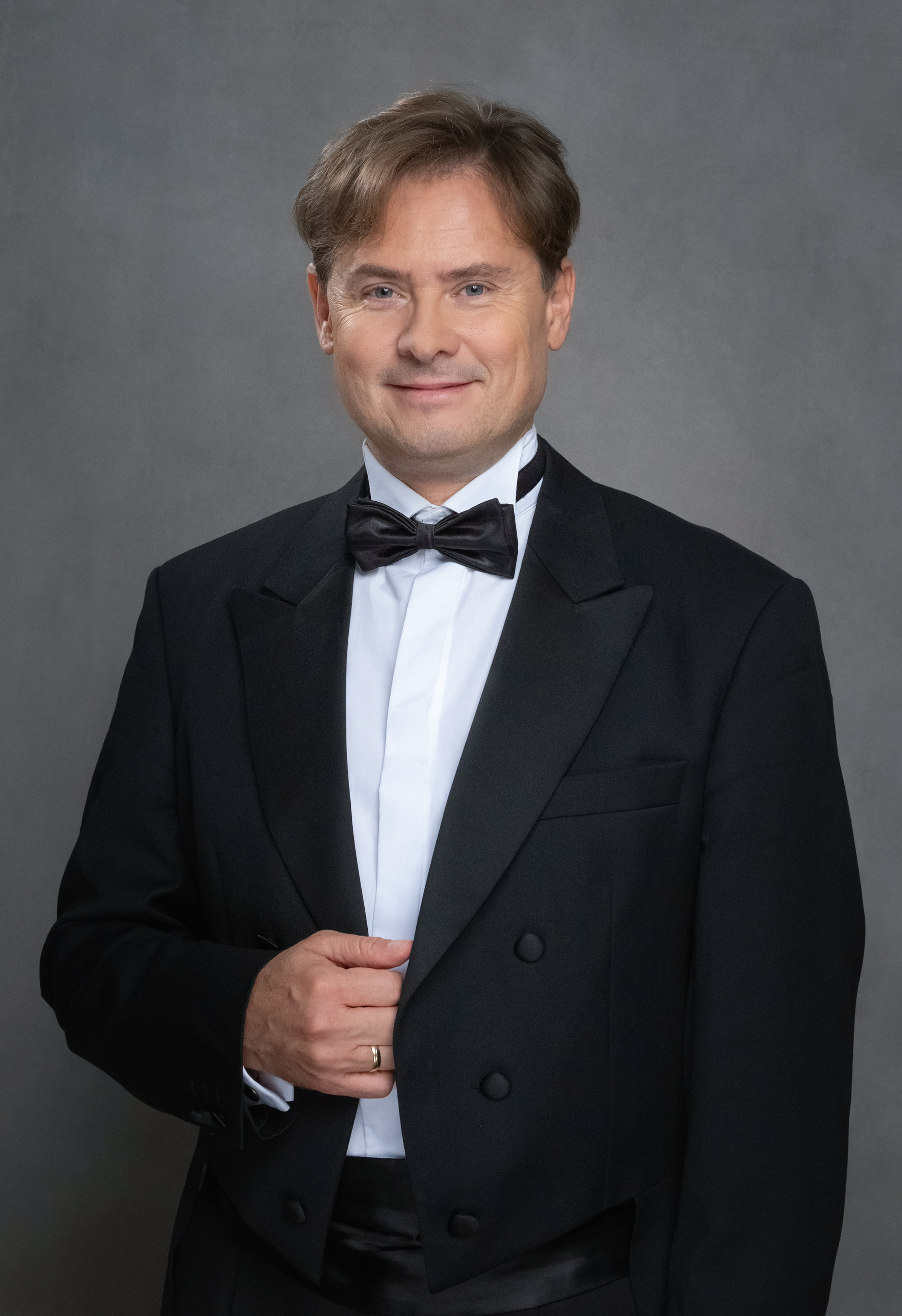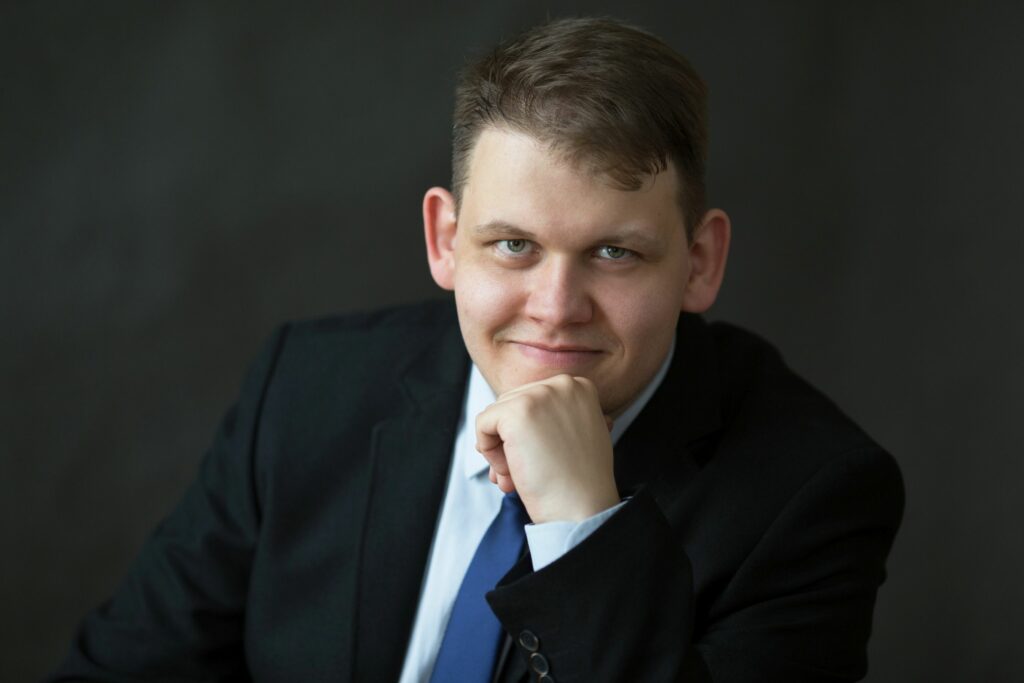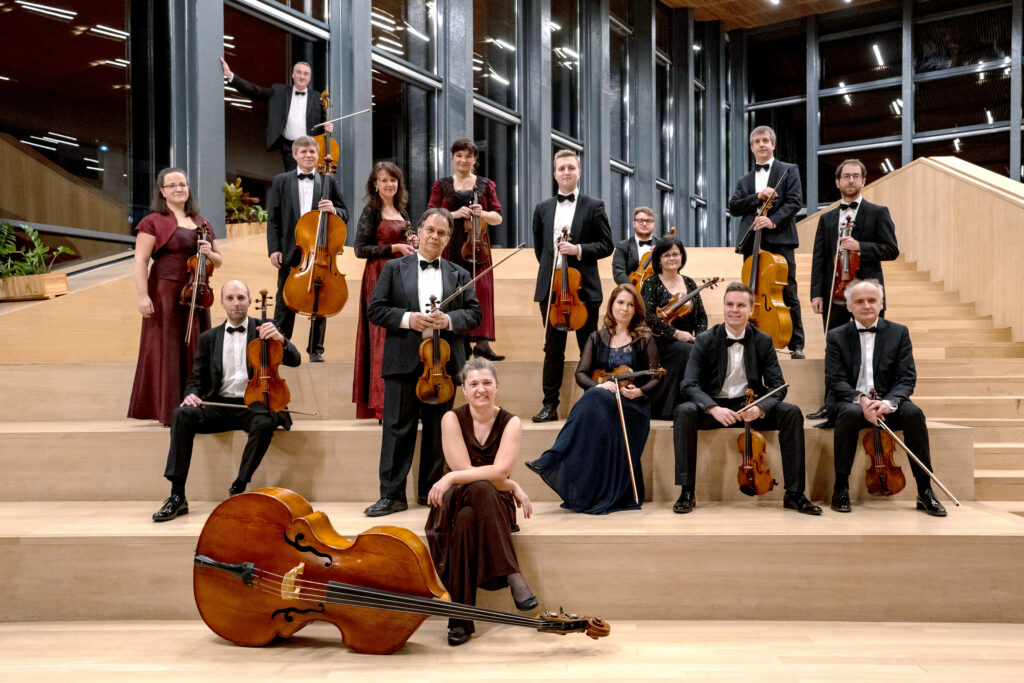Joseph Haydn composed his Symphony No. 89 in F major in 1787 while in service to Prince Nicholas Eszterházy I ‘The Magnificent’. The siciliano Andante movement and rondo finale of the work following the traditional four-movement model exploits the thematic material of the concerto composed for two lira organizzata (hurdy-gurdy) commissioned by King Ferdinand IV of Naples a year earlier. One of the composer’s most popular masses, Paukenmesse, which employs timpani to such dramatic effect, dates from 1796, nearly a decade after the symphony. Its sub-title, Missa in tempore belli (Mass in time of war), refers to the troubled and confused situation in which Europe, including the Habsburg Empire, found itself in the years after the French Revolution. For centuries, analysts read a yearning for peace into the gestures and characters of the music. National Choir are one of Hungary’s leading professional vocal ensembles formed out of the Hungarian State Choir; they have worked in close collaboration with Hungarian National Philharmonic for decades. Conductor of the concert Csaba Somos has been choral director since 2016. Budapest Strings were established in 1977 from graduate students of the Liszt Academy, and in the course of nearly half a century under the artistic direction of Károly Botvay they have dedicated themselves to interpreting masterpieces of numerous periods of music literature. The four soloists at this concert – Csilla Kovács, Dorottya Láng, Márton Komáromi and Zsombor Cserményi – have proven their proficiency in the field of the First Viennese School on countless occasions.










